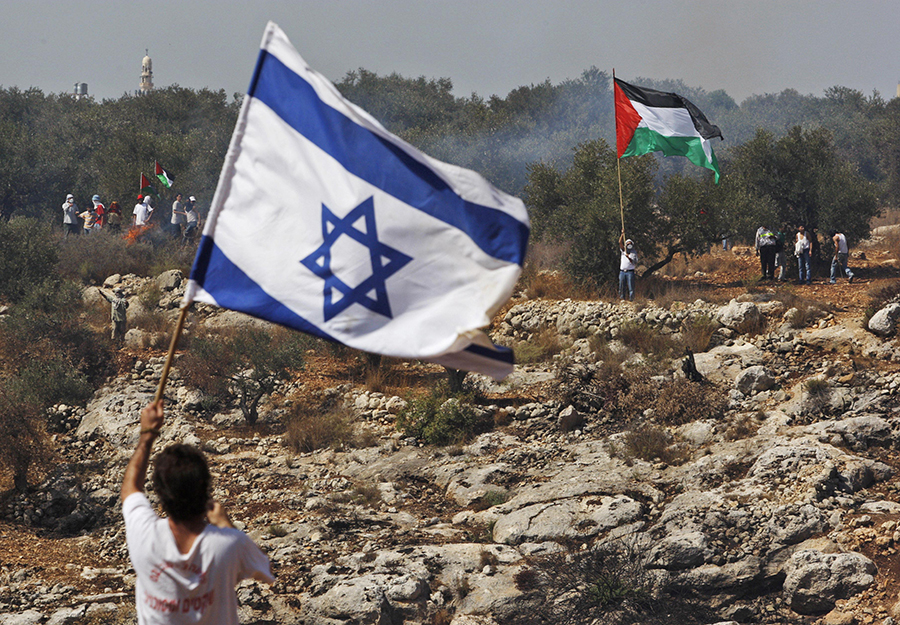Amnesty International stays silent on antisemitic issues
April 3, 2022
Courtesy of The Washington Institute
Boiskin gives his views on Amnesty International and their report on Israel.
Amnesty International, a human rights organization, recently accused the Israeli government of creating and maintaining an apartheid state in a nearly 300-page report. The report, which labels the Israeli government as “an institutionalized regime of systematic oppression and domination over Palestinians,” immediately provoked an outcry from the international Jewish and Zionist community. In Jerusalem, Israel, I met with students from across the world, some of whom hold Israeli citizenship, to find out what they have to say about this.
“Amnesty International claims to be a human rights organization, but they pick and choose when it comes to discrimination. The logic that they cannot campaign for every issue, is simply horrendous,” said Luiz Gandelman, a Jewish individual who holds both Israeli and Brazilian citizenship and lives in Miami, Florida. “They should be combatting all forms of hate, whether it’s islamophobia or antisemitism. Calling Israel an apartheid state does not make sense either, because Israel is nothing like South Africa prior to the early 1990s. In Israel, both Arabs and Israelis can live together, even though I do not agree with everything that the Israeli government does.”
Israel has historically rejected comparisons with apartheid-era South Africa, according to CNN. In South Africa, apartheid was used to strip citizenship from non-Whites and require non-Whites to use a system of identity papers and passes to both travel and work. However, for Arabs and non-Jews in Israel, this system does not exist, says Alex Milman, a Jewish-American citizen in Voorhees, New Jersey, who is looking to obtain Israeli citizenship later this year. “Simply go to Israel, and you will see that in most cases, the people there live together,” says Milman.
Still, some organizations continue to elevate the Palestinian-Israeli conflict to more than just a territorial dispute. For example, the New York-based Human Rights Watch in April last year joined the “growing international movement to redefine the conflict as a struggle for equal rights instead,” according to The Guardian. In response, the Israeli government has continued to insist that its own Arab citizens enjoy and possess equal rights as anyone else.
Gandelman says he can see where some of these organizations are coming from. However, to Gandelman, Amnesty is just a visage, that has wrongfully responded to the Israeli-Palestinian conflict. He recommends that students in Amnesty International clubs across America research more before campaigning about Amnesty-endorsed topics. “My message to students in Amnesty International clubs would be to consider whether or not it’s worth having your name attached to an organization that seems nice on paper, but in reality fails to properly research incredibly sensitive and important topics. You can campaign for human rights without slapping the Amnesty International label on your club or project.”
Meital Brodi, a high school student from Ithaca, New York, spending this semester in Israel, and a dual citizen of both Israel and America, agrees. “Of course, there are issues with the Israeli government, but calling it an apartheid state is wrong. I don’t always support the actions of the government, however, I’ve never witnessed apartheid in action while visiting the country. For example, in the Shuk (the marketplace), I saw people of all different cultures, speaking both Arabic and Hebrew, while mingling, shopping, and simply walking around.”
Jesse Sklar (‘24), a Cherry Hill High School East student, reached out to East’s Amnesty International club for a response on this issue: he was surprised by what they had to say.
“Our student group does not necessarily have a collective stance on the recent report that was published, [and] different members of our group can have different stances on the issue. Our goal is to create a positive impact, and being a chapter of Amnesty allows us to do that,” said a representative of the club.
Sklar says that East’s Amnesty chapter will not create a positive impact by staying silent on this issue. After all, as Elie Wiesel, a famous Holocaust survivor, once said, “What hurts the victim most is not the cruelty of the oppressor, but the silence of the bystander.”
